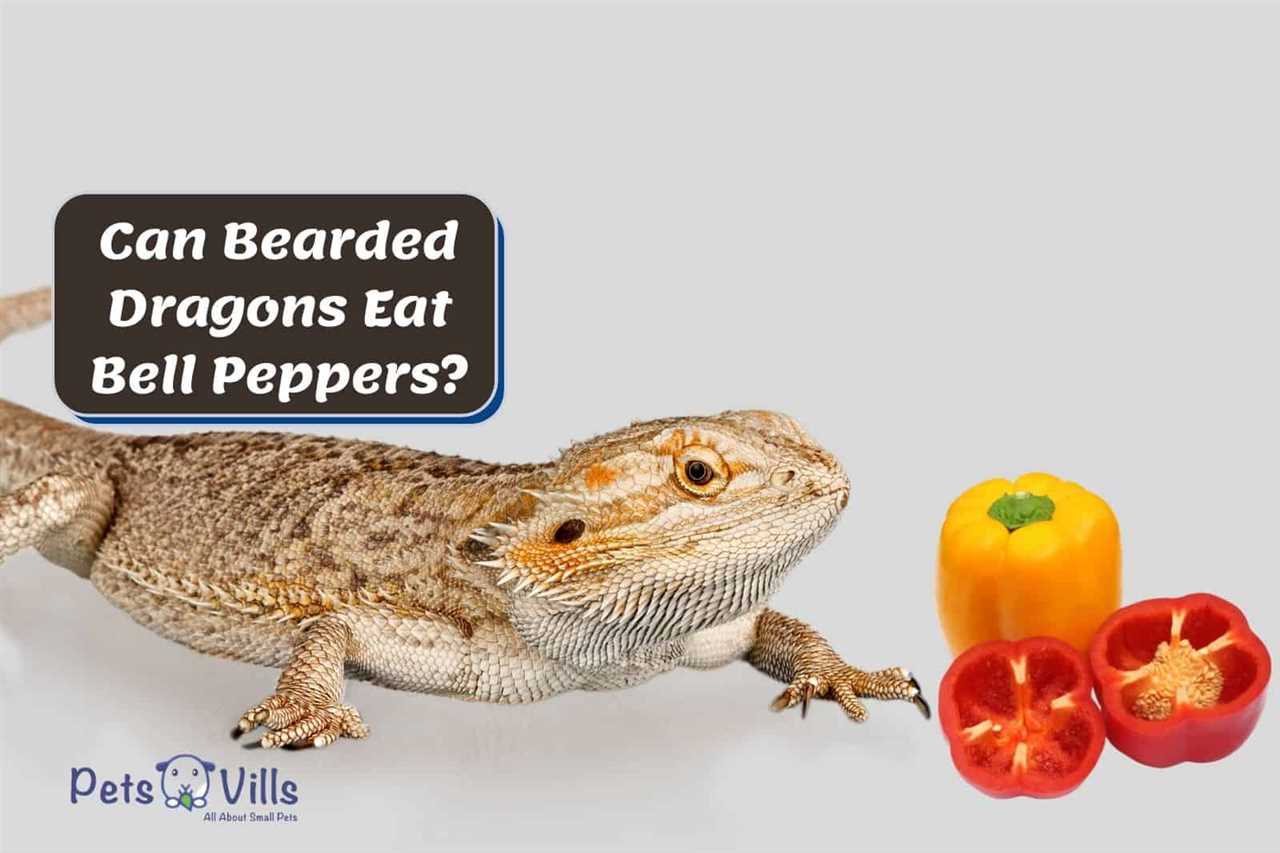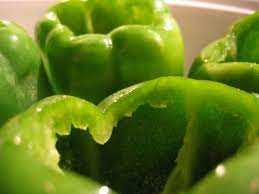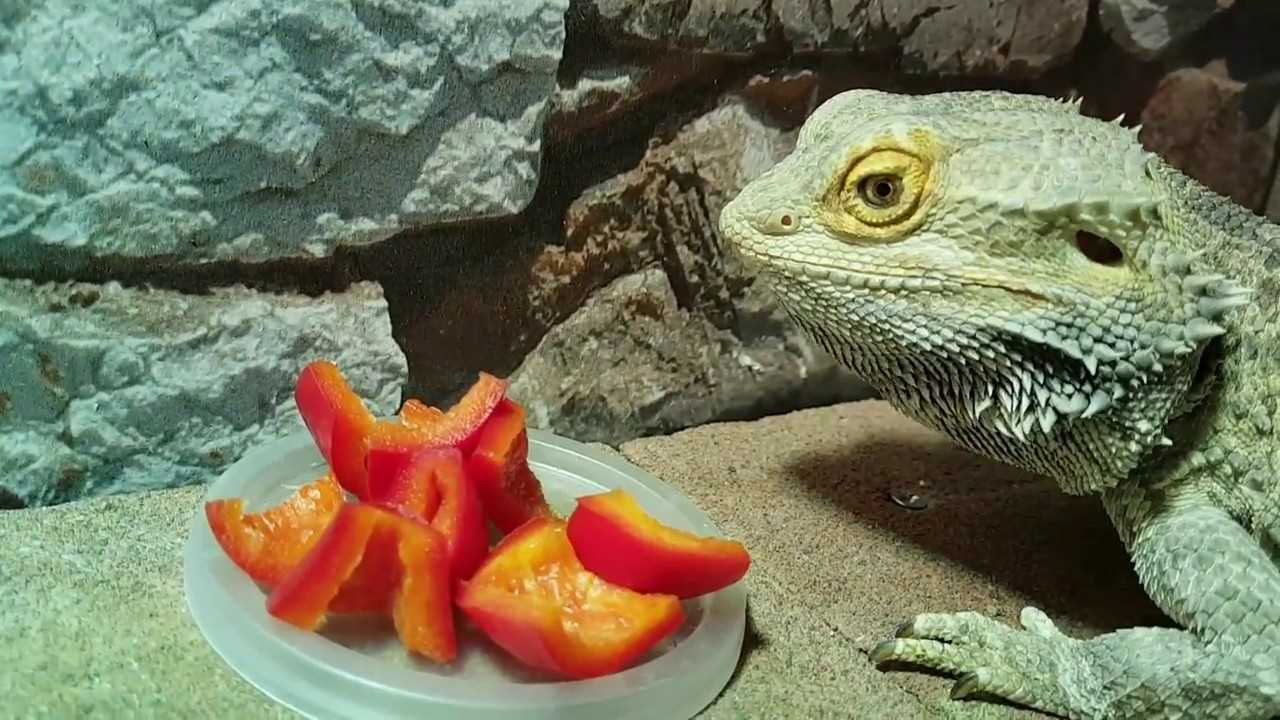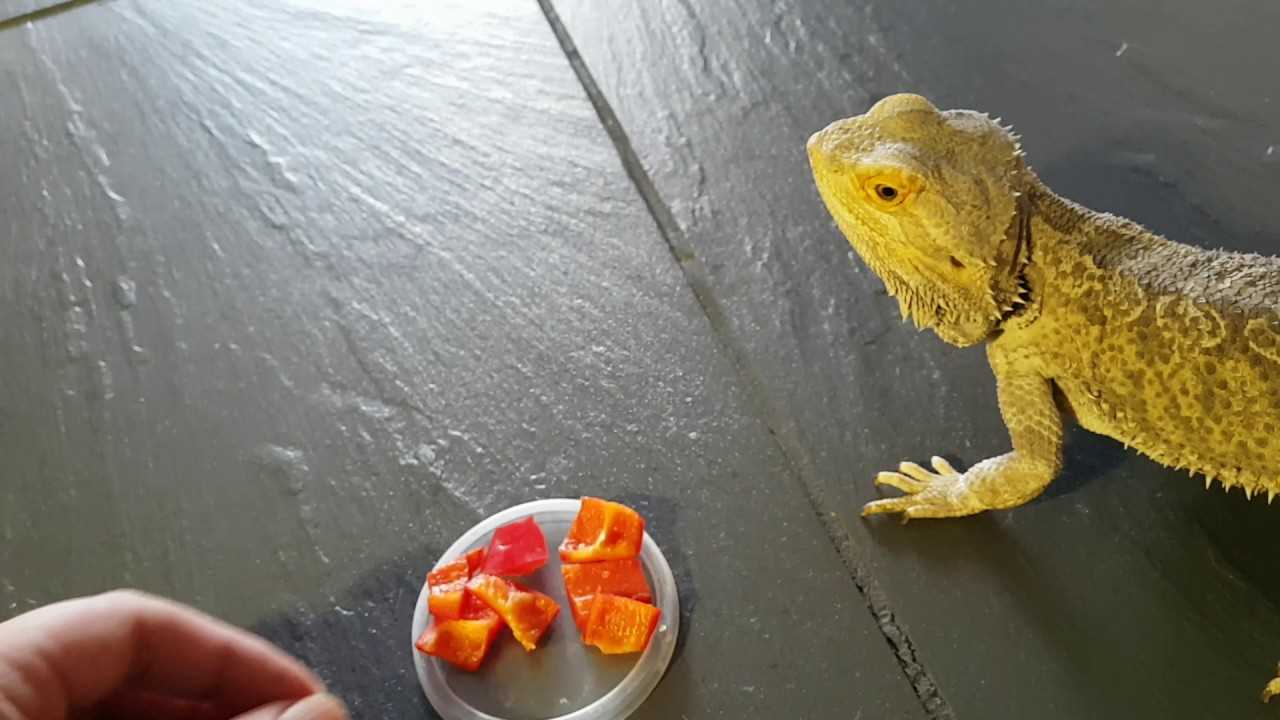
Not only are bell peppers a great source of vitamins and minerals, but they also provide essential hydration to your bearded dragon. These vegetables have high water content, helping to keep your pet hydrated and promoting overall well-being. Furthermore, bell peppers are low in calories, making them an ideal choice for bearded dragons that require a balanced and controlled diet.
The Benefits of Adding Bell Pepper to a Bearded Dragon’s Diet

A bearded dragon is a reptile that makes a great pet for many people. These lizards require a balanced diet that includes a variety of foods to keep them healthy and thriving. One vegetable that can be a beneficial addition to their diet is bell pepper.
Bell pepper is a nutritious food for bearded dragons. It is low in fat and calories, making it a great choice for lizard owners who want to keep their pets at a healthy weight. Bell peppers are also high in vitamins and minerals that are essential for a bearded dragon’s overall well-being.
Bell pepper is also a great source of fiber, which is important for a bearded dragon’s digestive health. The fiber in bell pepper can help prevent constipation and keep their digestive system functioning properly. Adding bell pepper to their diet can help ensure that their waste is effectively eliminated, reducing the risk of digestive problems.
In addition to its nutritional benefits, bell pepper also serves as a colorful treat for bearded dragons. These lizards are attracted to vibrant colors and offering them bell pepper can provide mental stimulation and prevent boredom. The bright red, yellow, and green colors of bell pepper can make mealtime even more enjoyable for these pets.
The Benefits of Adding Bell Pepper to a Bearded Dragon’s Diet
Nutritional Value

Vitamin C plays a crucial role in supporting the immune system of your reptile pet. It helps in the production of collagen, aids in wound healing, and acts as an antioxidant to protect against free radicals.
Vitamin A is essential for maintaining healthy skin and eyes in bearded dragons. It is responsible for promoting proper growth and development, as well as improving their immune response.
Potassium is an important mineral that helps regulate fluid balance and maintain healthy muscle function in bearded dragons. It also supports proper nerve function, including heart health.
Promotes Digestive Health
Bell peppers are a great source of dietary fiber, which is crucial for maintaining a healthy digestive system in bearded dragons. Fiber helps in preventing constipation and aids in the passage of food through the digestive tract.
Including bell peppers in your bearded dragon’s diet can help prevent digestive issues and ensure optimal nutrient absorption. It can also promote regular bowel movements, which is essential for overall gut health.
Aids in Maintaining Healthy Skin and Eyes

The high vitamin C and vitamin A content in bell peppers can contribute to improving and maintaining healthy skin and eyes in bearded dragons. These vitamins help in the production of collagen, which is a protein that supports the structure and elasticity of the skin.
Additionally, vitamin A is necessary for maintaining proper eye health, preventing eye infections, and promoting clear vision. Including bell peppers in your bearded dragon’s diet can help prevent skin and eye problems commonly seen in reptiles.
| Nutrient | Amount per 100g |
|---|---|
| Vitamin C | 80.4 mg |
| Vitamin A | 1127 IU |
| Potassium | 211 mg |
When feeding bell peppers to your bearded dragon, make sure to remove the seeds and wash the vegetable thoroughly to remove any pesticides or contaminants. It is recommended to include bell peppers in their diet along with other vegetables and a variety of protein sources to ensure a balanced and nutritious meal.
Remember to always consult with a veterinarian or reptile nutritionist for specific dietary recommendations for your bearded dragon, as individual needs may vary. With proper care and a well-balanced diet that includes bell peppers, your bearded dragon can thrive and enjoy a healthy life.
Nutritional Value:
The bell pepper is a nutritious vegetable that can provide numerous health benefits for your bearded dragon. As a pet owner, it is essential to understand the nutritional needs of your reptile companion. Incorporating bell peppers into their diet can be an excellent way to ensure they receive a well-rounded and balanced diet.
Bell peppers are rich in vitamins and minerals, making them a valuable addition to your bearded dragon’s food. They are an excellent source of vitamin C, which strengthens their immune system and aids in wound healing. Additionally, bell peppers contain vitamin A, which is crucial for maintaining healthy skin and eyes in reptiles.
This vibrant vegetable is also packed with antioxidants that help fight free radicals and promote overall well-being. These antioxidants can help protect your bearded dragon’s cells from damage, reducing the risk of diseases and illnesses.
Furthermore, bell peppers are low in fat and calories, making them an ideal option for bearded dragons that require a controlled diet. This vegetable provides essential nutrients without adding unnecessary weight, ensuring your pet maintains a healthy body condition.
Incorporating bell peppers into your bearded dragon’s diet can also promote digestive health. The high fiber content in bell peppers helps regulate bowel movements and prevents constipation. By adding this vegetable to their meals, you can help prevent gastrointestinal issues and maintain a healthy digestive system.
To incorporate bell peppers into your bearded dragon’s diet, you can chop them into small pieces and mix them with other vegetables or insects. This variety in their diet will make mealtime more exciting for your reptile and ensure they receive all the necessary nutrients for a healthy life.
| Nutrients | Values per 100g |
|---|---|
| Energy | 20 kcal |
| Protein | 0.9g |
| Carbohydrates | 4.6g |
| Fiber | 1.7g |
| Fat | 0.2g |
| Vitamin C | 80.4mg |
| Vitamin A | 1572 IU |
Promotes Digestive Health:
Adding bell peppers to the diet of your pet lizard, specifically the bearded dragon, can have numerous benefits, including promoting digestive health. Bearded dragons are omnivorous reptiles and require a balanced diet to thrive. Bell peppers, being a vibrant and nutrient-dense vegetable, can be an excellent addition to their food.
Bell peppers are rich in dietary fiber, which plays a vital role in maintaining a healthy digestive system for your bearded dragon. The fiber content in bell peppers helps regulate bowel movements and prevents constipation, a common issue in reptiles. By promoting regular and healthy digestion, bell peppers can contribute to your dragon’s overall well-being.
In addition to fiber, bell peppers are also packed with essential vitamins and minerals that are beneficial for your pet lizard. The vitamin C content in bell peppers helps support the immune system of your bearded dragon, keeping them healthy and protected against diseases.
Furthermore, bell peppers contain antioxidants that help neutralize harmful free radicals, reducing the risk of cell damage and inflammation. This is particularly important for bearded dragons, as it helps maintain healthy skin and eyes.
Overall, bell peppers can be a nutritious and colorful addition to your bearded dragon’s diet. By promoting digestive health and providing essential vitamins and antioxidants, bell peppers can contribute to the overall well-being of your beloved reptile.
| Promotes Digestive Health: |
| Adding bell peppers to the diet of your pet lizard, specifically the bearded dragon, can have numerous benefits, including promoting digestive health. Bearded dragons are omnivorous reptiles and require a balanced diet to thrive. Bell peppers, being a vibrant and nutrient-dense vegetable, can be an excellent addition to their food. |
| Bell peppers are rich in dietary fiber, which plays a vital role in maintaining a healthy digestive system for your bearded dragon. The fiber content in bell peppers helps regulate bowel movements and prevents constipation, a common issue in reptiles. By promoting regular and healthy digestion, bell peppers can contribute to your dragon’s overall well-being. |
| In addition to fiber, bell peppers are also packed with essential vitamins and minerals that are beneficial for your pet lizard. The vitamin C content in bell peppers helps support the immune system of your bearded dragon, keeping them healthy and protected against diseases. |
| Furthermore, bell peppers contain antioxidants that help neutralize harmful free radicals, reducing the risk of cell damage and inflammation. This is particularly important for bearded dragons, as it helps maintain healthy skin and eyes. |
| Overall, bell peppers can be a nutritious and colorful addition to your bearded dragon’s diet. By promoting digestive health and providing essential vitamins and antioxidants, bell peppers can contribute to the overall well-being of your beloved reptile. |
Aids in Maintaining Healthy Skin and Eyes:
Bearded dragons require a balanced and varied diet to thrive, and bell pepper is an excellent vegetable to include in their food rotation. Bell peppers are rich in antioxidants, particularly in vitamin C and beta-carotene, which play a crucial role in maintaining healthy skin and eyes.
Beta-carotene, a precursor to vitamin A, is converted into the vitamin in the body. Vitamin A is crucial for maintaining good eyesight and eye health. It is necessary for the functioning of the retina and plays a role in preventing night blindness. By consuming bell pepper, bearded dragons can obtain an adequate amount of beta-carotene, which promotes optimal eyesight and reduces the risk of eye-related issues.
When feeding bell pepper to a bearded dragon, it is essential to choose ripe and fresh peppers. Wash the pepper thoroughly, remove the seeds and any white pith, and then cut it into small, bite-sized pieces. It is recommended to offer bell pepper as part of a balanced diet, along with other vegetables, fruits, and live insects.

I’m Lena Adams—a product of an unconventional upbringing in the African wilderness. My father, a daring explorer of African wildlife, sparked my fascination with reptiles, a passion that intertwined with the tragic loss of my mother during an expedition, leaving an indelible mark on my life. Driven to understand the creatures that captivated my parents, I embarked on my journey, sharing insights about reptiles, frogs, and lizards on my website. Through my explorations and conservation efforts, I honour my family’s legacy while seeking connections—to the creatures, nature, and the mother whose presence I yearn to understand.
